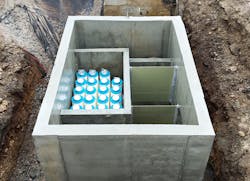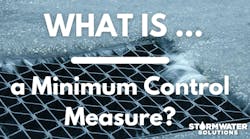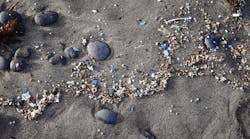SEATTLE, WA (December 13, 2019) — Bio Clean's Kraken Membrane Filter is the latest stormwater solution to receive certification from the Washington State Department of Ecology. Washington Ecology's Technology Acceptance Protocol – Ecology (TAPE) has granted General Use Level Designation (GULD) treatment approvals to the Kraken for both Basic Treatment (Total Suspended Solids – TSS) and Total Phosphorus – TP.
The TAPE certification process was designed to establish applicable design criteria and performance goals for new development and redevelopment. Washington Ecology TAPE certification means that the Kraken Membrane Filter has successfully met the TAPE performance goals when properly installed, operated, and maintained.
Although TAPE is a Washington State testing and certification protocol, there are far-reaching influences, as several other states, counties, and cities throughout the United States reference the WA Ecology TAPE certification to determine whether a stormwater treatment technology can be installed within their jurisdiction.
The Kraken is a cost-effective, flexible, and easy to maintain filtration solution to the vast stormwater challenges found throughout North America and with the TAPE GULD, the Kraken Membrane Filter is the only certified technology of its type with approval from WA Ecology and the New Jersey Department of Environment (via the 2013 NJCAT laboratory protocol).
The Kraken filter can be used as a stand-alone BMP and presents engineers and developers with efficient treatment options for stormwater management projects across the country.
For more information on the Kraken Membrane Filter, visit Bio Clean's website.






